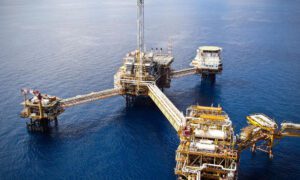


Education vs. Experience: What matters most in political leadership?
The recent deliberation within the esteemed House of Representatives, pertaining to a bill that seeks to modify the minimum academic prerequisite for individuals aspiring to hold political office, has ignited a profound fascination in the realm of governance in the Federal Republic of Nigeria.
The bill, titled “A Bill for an Act to Alter the 1999 Constitution of the Federal Republic of Nigeria (as amended) to change the Educational Qualification for Elections into Certain Political Offices and for Related Matters,” aimed to raise the requirement from a first school leaving certificate to a university degree or its equivalent.
Although the bill was eventually withdrawn by the House, the debate surrounding it shed light on the importance of educational qualifications in political leadership.
Supporters of the bill argued that in today’s globalised world, it is absurd that the only requirement for all elective positions is a basic school leaving certificate. They emphasised the need for candidates to possess a higher level of education to effectively navigate complex issues and make informed decisions.
On the other hand, opponents of the bill voiced their concerns, stating that a university degree should not be the sole determinant of a candidate’s suitability for political office. They argued that experience, leadership qualities, and a deep understanding of the needs of the people should also be considered.
Additionally, they highlighted the potential exclusion of candidates from marginalised communities who may not have access to higher education.The debate surrounding this bill has brought to the forefront the question of how educational qualifications impact the quality of governance in Nigeria.
While the bill may have been withdrawn, it has sparked a necessary conversation about the importance of a well-rounded skill set and the need for a balance between educational qualifications and other essential qualities in political leadership.
Despite the opposition’s concerns about the education gap and the potential exclusion of certain individuals, their main argument against the bill was that academic qualifications do not truly measure knowledge. Some members suggested a compromise by increasing the qualification level for higher offices but not for local council positions.
However, these debates failed to convince enough people to move the bill forward. It seemed to be a divisive issue that could not gain enough support, even though it raised important questions about the quality of education and the significance of academic qualifications in governance.
It is disheartening to see that in this modern era of educational advancements, the minimum requirement for the highest office in the country is only a primary school leaving certificate. This speaks volumes about how low the standards have been set for a position that requires the highest level of information processing and decision-making. It is simply unacceptable.
While we acknowledge the importance of experience in leadership, it is difficult to imagine any organisation hiring a CEO with only a primary school education in today’s rapidly changing world.
We must emphasise the crucial role of education in politics, governance, and development. It is through a solid education that we can effectively formulate and execute policies. Additionally, problem-solving skills, which are greatly enhanced by a robust education, have been the foundation of civilisations for centuries.
These factors are the key differentiators between development and underdevelopment. However, the path to societal progress is not solely paved with academic achievements. It requires a strong sense of patriotism and a genuine desire to serve.
Without these qualities, academic knowledge becomes not just futile, but also a dangerous force that can wreak havoc on society.Interestingly, since 1999, many of our political leaders have boasted impressive educational backgrounds.
We have had presidents, governors, and lawmakers with degrees from prestigious institutions, some even from abroad. Yet, the overall quality of governance has remained disappointingly average.
In fact, corruption has grown exponentially while the standard of governance has regressed, if not deteriorated further. It is disheartening to note that a significant number of political office holders currently facing trial or investigation by anti-graft agencies are individuals with strong academic credentials.
We often hear stories of pre-independence and first republic Nigerian political leaders who, despite having limited formal education, excelled in their roles and served the people admirably. If the purpose of education is to mold individuals into responsible and service-oriented citizens, then higher education should enhance their contributions to society.
However, in Nigeria, the opposite seems to be true. It is no wonder that for years, the academic qualifications of many political office holders have been called into question.
Perhaps, if and when the debate resurfaces, we can hope that lawmakers will give more consideration to the urgent need for improving the quality of education in Nigeria. In our opinion, the discussions sparked by this bill should prompt a reevaluation of our educational system, aligning it with modern trends and demands.
Beyond the lamentation over the inadequacy of the first school leaving certificate, it is crucial to delve into the very foundation of our nation’s academic system.
The profound disregard that our educational system has endured over time, both in the past and even in the present, necessitates a thorough examination.
Merely obtaining a tertiary level certificate may not suffice in cultivating the kind of leaders our governance structure desperately requires to thrive.
Let us embark on a journey of creative exploration, peering into the intricate architecture of our academic landscape.


